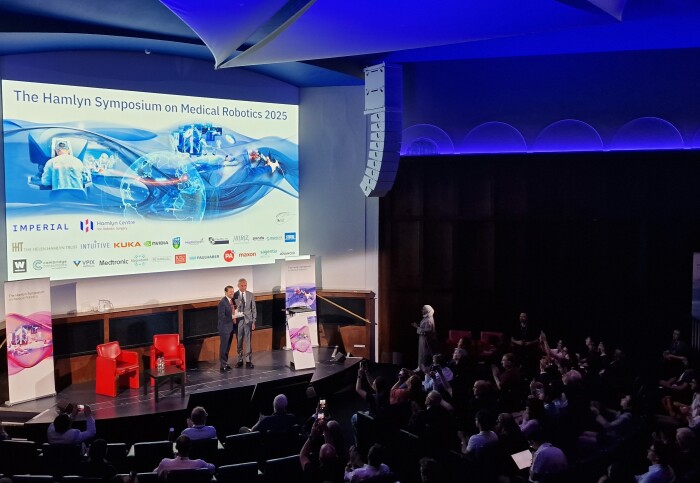
We bring innovation in physical sciences - from imaging and materials to electrical, chemical and biological engineering - together with fundamental infection research to transform the way we study, detect and monitor infectious agents and the progression of infection and disease.
Imperial has broad and deep expertise in engineering science, which we harness to focus on infection, in the lab and in the patient, with techniques such as artificial organs-on-a-chip, slow-delivery drug implants, and point-of-care infection diagnostics. We use this potential to transform the approach to infection, developing new ways to detect and quantify infections - and to stop them.
Our physical & engineering sciences champions
-
Dr Anna Barnard
/prod01/channel_3/media/migration/research-groups/barnard-anna-2-tojpeg-1525453044172-x1_1636541398994_x4.jpg)
Research interests
Developing chemical tools to understand and inhibit therapeutically significant protein-protein interactions. This work encompasses aspects of chemical biology, synthetic organic chemistry, peptide and protein chemistry, chemical proteomics and medicinal chemistry.
-
Dr Tom Ellis
/prod01/channel_3/media/migration/research-groups/ellis-tom_1607508315149_x4.jpg)
Research interests
Developing foundational tools for accelerating, automating and scaling design-led synthetic genomics and synthetic biology, as well as applied projects in industrially-relevant and medically-relevant microbes, including infectious pathogens.
-
Dr Edwin Garcia
/prod01/channel_3/media/images/people-list/Edwin-Garcia-34.jpg)
Research interests
Developing and applying new tools to study and diagnose infection: Recent examples include applying FRET to study hACE2 binding Coronavirus spike protein in BSL1 disease models; applying single molecule localisation microscopy to image SARS CoV-2 virus in post-mortem lung tissue and to study host-pathogen interactions associated with defective phagocytosis; development of low-cost multiplexed immunostaining instrumentation and protocols for rapid diagnosis, e.g., using minimal diagnostic antibody panels strategies.
-
Professor Pantelis Georgiou
/prod01/channel_3/media/migration/research-groups/georgiou-pantelis_1607083617349_x4.jpg)
Research interests
The design of novel Lab-on-Chip technology using CMOS microelectronics, applied in rapid diagnostics for infectious diseases and control of antimicrobial resistance. Broad expertise in the development of innovative wearable and medical device technology for the rehabilitation of chronic diseases such as diabetes.
-
Professor Cleo Kontoravdi
/prod01/channel_3/media/migration/research-groups/kontoravdi_1607358871491_x4.jpg)
Research interests
The application of systems engineering principles to bioprocessing. Research involves the systematic integration of model-based tools with experimentation on mammalian cell culture systems. The lab has been instrumental in the interrogation of bioprocessing data for the manufacture of vaccines against viral infection.
-
Professor Molly Stevens
/prod01/channel_3/media/migration/research-groups/stevens-molly_1607083515680_x4.jpg)
Personal details
Professor Molly Stevens Professor of Biomedical Materials and Regenerative MedicineResearch interests
Applying innovative bioengineering approaches toward regenerative medicine and biosensing, with a particular interest in infection. The lab's research spans drug delivery, tissue engineering, biosensing, materials characterisation, soft robotics and the interface between living and non-living matter.
